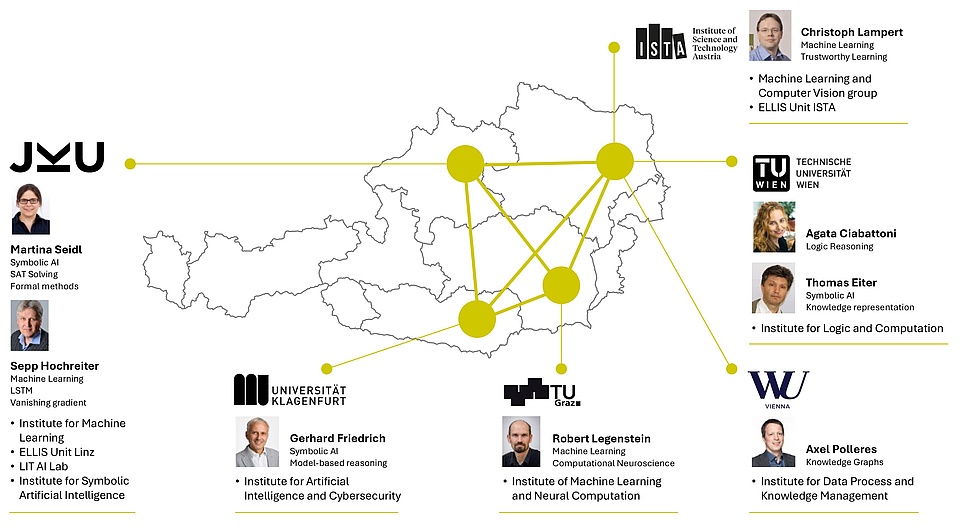Bilateral AI - A new level of artificial intelligence

The project “Bilateral AI” aims at lifting artificial intelligence (AI) to the next level. Current AI systems are in a sense narrow. They center on a specific application or task such as object or speech recognition. Our project will combine two of the most important types of AI which have been developed separately so far: symbolic and sub-symbolic AI. While symbolic AI works with clearly defined logical rules, sub-symbolic AI (such as ChatGPT) is based on training a machine with the help of large datasets to create intelligent behavior. This integration, resulting in a Broad AI, is intended to mirror something that humans do naturally: the simultaneous use of cognition and reasoning skills.
But what exactly is Broad AI? As opposed to Narrow AI, which is characterized by task specific skills, Broad AI aims at solving a wide array of problems, rather than being limited to a single task or domain. By combining sub-symbolic AI (machine learning, ML) with symbolic AI (knowledge representation and reasoning, KRR), Bilateral AI provides the means to develop the foundations of the capabilities and skill acquisition for problem solving by a Broad AI.
Harnessing the full potential of both symbolic and sub-symbolic approaches can open new avenues for AI that are better at solving new problems, adapting to a wide variety of environments, having better reasoning skills, and being more efficient in terms of both computation and data use. These key features allow for a vast range of use cases for Broad AI, starting with drug development and medicine, over planning and scheduling, to autonomous traffic management and recommendation systems. With fairness, transparency, and explainability as top priorities, developing Broad AI is also essential for addressing ethical concerns and ensuring a positive impact on our society. These concerns play a central role as cross-cutting aspect in our project.
The “Broad AI” resulting from the “bilateral AI” approach would use its own sensory perceptions to perform abstractions and engage in a logical thinking process. The AI could then, for example, organize a trip, minimize carbon emissions, or renovate a house as cost-effectively and ecologically as possible. In other words, AI could perform complex planning taking all aspects into account.
Sepp Hochreiter, Director of Research: “Broad AI could potentially improve our everyday lives as well as system-relevant aspects and processes – such as energy, transportation and healthcare – by becoming more environmentally sustainable, efficient and resource-friendly.”




